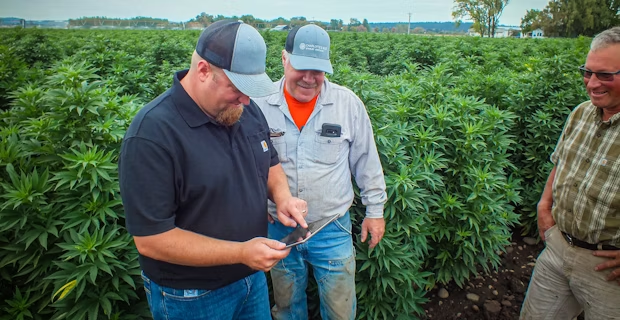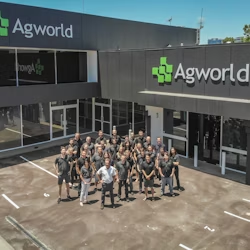This article was first published by Precisionag.com
As Agworld celebrated its 10th year of doing business last year, I’ve had many conversations about our critical success factors and what shapes us as an organization. There weren’t nearly as many Agtech start-ups in 2009 as there are now and the number of those Agtech start-ups from 2009 that are still operating independently now, is very low indeed. So why did Agworld not only survive, but thrive for the last 10 years and how can this be replicated? This is the question that I get asked often and it also happens to be a topic that I’m very passionate about.
We probably started Agworld at the right time indeed and, with an increased awareness of Cloud technologies, then the first generation of iPads, we picked the right technologies to base our software on. Specific choices such as collaboration capability, investing in structured databases and working 100% cloud-based that, in hindsight, created a very solid foundation to build on, which still provides us with a competitive advantage in 2020. But the one factor that truly sets us apart from many other businesses? That’s a very simple question for me: it’s the people of Agworld.

I recently saw an interesting post on LinkedIn where someone had done research into Agtech companies and the different types of employees within these organizations. With an average of 93 employees per company comprising out of 29 data scientists, 19 sales / marketing / business development people, 8 ML/AI professionals and 46 IT professionals / developers, they had found that the average Agtech startup only employs 2 people with an agricultural background within the organization.
I find these numbers to be quite extraordinary for an industry where product market fit is of such high importance. Within Agtech, intricate knowledge of the end-user and the problems they face on an everyday basis is critical in order to offer exactly those solutions that are needed in the field. Could it be the lack of people with industry experience within Agtech startups that is (at least partially) causing some of the mis-aligned product offerings and subsequent (forced) consolidations we see a lot of at the moment?

Got what it takes to join the Agworld team? We’re looking for talented individuals to help us deliver innovative solutions in agriculture.
Let me be clear: at Agworld we don’t just hire colleagues that have an agricultural background; a fit within the company culture and expertise for the role we’re filling is always key. However, we still often find that a mix of people with a range of skills and experience from an agricultural background fulfil these criteria best. We now have a team of around 60 people based in 3 different countries and over 30% of the team have an agricultural background. They have either obtained an agricultural degree, have extensive work experience in the agricultural industry or, often, a combination of both.
When you add this to people who are passionate about the mission the team have consistently been able to create and develop digital products that resonate with our user base, and that has enabled us to achieve a market penetration in our first market, Australia where already around 85% of agronomists use Agworld, that is rarely seen in Agtech. We are using this same industry knowledge to power our expansion into other markets and consistently get positive feedback from our clients and partners about the difference this makes on a daily basis.
I think that, for new startups and existing Agtech business alike, this balance between colleagues with industry knowledge and those with a ‘fresh set of eyes’ will become even more important in the near future. Agtech products increasingly get judged more on their market-fit instead of just on how ‘novel’ the stand-alone technology is, which is a trend I see becoming stronger yet. Agriculture has always been an industry that revolves around people and the relationships between them; Agtech, as part of this industry, is no exception.





